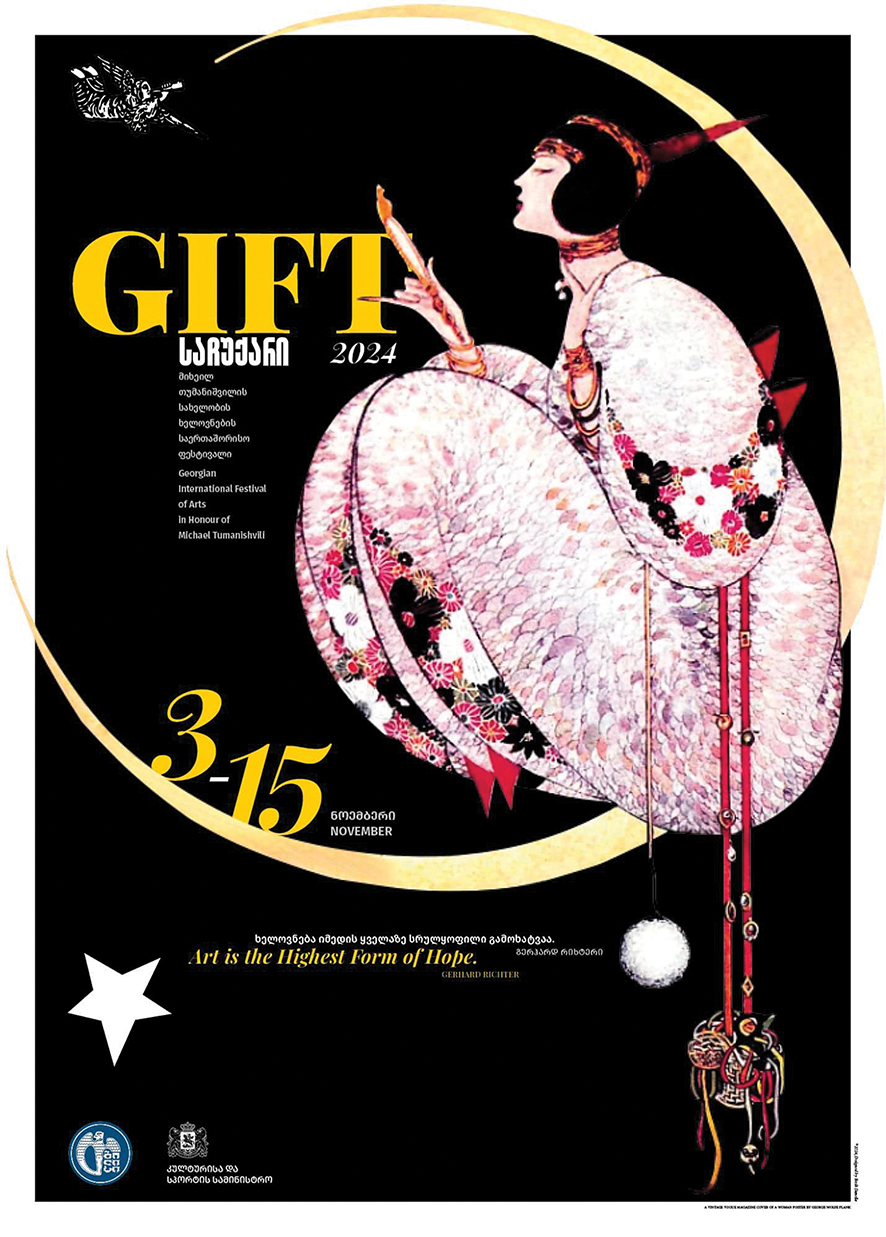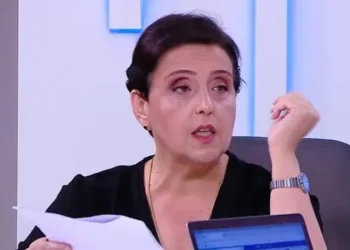Conceptualized 27 years ago in Edinburgh, the Georgian International Festival of Arts in Tbilisi (GIFT) was born and has stayed strong throughout years of change to offer a platform for Georgian artists and countless performers worldwide.
Keti Dolidze is the artistic director of GIFT, as well as a theater and film director, and an occasional actress. She tells GEORGIA TODAY how, during the 1980s and 90s, the Tumanishvili Film Actors Theater was very popular for performances; however, since those were Soviet times, it was difficult for her and others to travel to theaters or performance centers outside of the country unless they had direct permission from Moscow. This is when Peter Brook, the founder of GIFT, decided that a festival needed to be held in Tbilisi, so others would come to them rather than Georgians having to travel.
In 1988, the Tumanishvili Film Actors Theater staged Don Juan, based on Lord Byron’s work, at the Edinburgh Festival, where Peter Brook was in attendance. Dolidze recalls that he was deeply impressed by the production and spoke about it to others. This marked the beginning of a growing interest in Georgian arts, with Brook and prominent figures like British actress and activist Vanessa Redgrave becoming increasingly captivated by the country’s creative scene.
The first year of the festival, in 1997, was held without any fees or honorariums. The only organized aspects were the flight to Georgia and transportation during the festival, which were provided free of charge by an Iranian taxi company offering a 24-hour service.
“In ’97, a rather old Georgian plane was organized by Georgian Airways,” Dolidze tells us. “To this day, I’m very thankful to them, and also sorry,” she adds with a laugh. “Around 220 people from 18 countries gathered at Stansted Airport and flew straight to Tbilisi. They arrived in a city facing electricity shortages, with no gas and no heating, and spent two weeks there.”
At that time, Tbilisi had only one hotel, the Sheraton, but due to costs, the organizers couldn’t accommodate all the guests there. As a result, nearly every visitor stayed with local families in private homes. Dolidze also recalls the festival’s opening year, when a large march took place from Freedom Square to the Philharmonic Hall, with all festival participants and locals joining in.
She notes that the festival was one of the first of its kind in the region; something truly unique that brought so many people together. It set the stage for similar festivals to appear later in Azerbaijan and Armenia.
“It was an incredible celebration,” Dolidze says. “And that happened because of the uniqueness of Georgian culture. Georgian film, Georgian theater: they are proof of the excellence of Georgian art. That’s how it began and how it continued.”

The festival is named in honor of Georgian Director Mikheil Tumanishvili. Dolidze describes him as one of the best reformers and greatest directors of Georgian theater. Born in 1935, Tumanishvili became popular during the 1950s and 60s, while he was working at Rustaveli Theater. He directed several productions that gained recognition at international festivals for his work, including his adaptation of A Midsummer Night’s Dream and Bakula’s Pigs, a classical Georgian play.
In 1968, Dolidze joined Tumanishvili’s group, and they quickly became inseparable, with him serving as her mentor and teacher. When Tumanishvili left the Rustaveli Theater, the Film Actors Theater was established in his name. Later, due to his profound influence in the field and his close relationship with Dolidze, the festival was also named in his honor.
The festival takes place over several days, this year running from November 3 to 15. It features various performances across multiple theaters in Tbilisi, showcasing both international and Georgian adaptations. The 2024 festival includes performances such as Oedipus Rex by Declan Donnellan, who was awarded this year’s Mikheil Tumanishvili Prize for Excellence in Art, Phaedra: From Euripides to Racine, from Seneca to Sarah Kane by the Shota Rustaveli State University of Theater and Film, Lapis Lazuli by Euripides Laskaridis, and more.
This year the festival is also welcoming a partnership with Venice Biennale College and the Italian Embassy. A competition will take place for the Biennale College, a two-year program for young artists. Emerging creatives will have the chance to present 10-minute previews of their work, in whichever form they desire, and the selected group will develop and showcase their projects at GIFT and in Venice. Dolidze says that if all goes well, this is an initiative that will continue with future festivals.
In recent years, Dolidze notes, the festival’s budget has been shrinking. With only a few sponsors able to contribute to its sustainability, she says, “Unfortunately, we are still dependent on the government.” To ensure the festival’s continued success, she is working closely with Prime Minister Irakli Kobakhidze to secure the necessary funding each year. Dolidze also expresses hope that the new Minister of Culture will be supportive of the 27-year-old festival.
Mikheil Tumanishvili once said: “The language of the theater has become more complex. New means, solutions, techniques and forms are needed. Anyone, especially the young, should be given the opportunity to courageously take the hard road of experimentation. We need to forever remember Stanislavski’s words that eternal art is an endless road which requires renovating every 15 or so years.”
The only time the festival was put to a halt was for nearly three years during President Mikheil Saakashvili’s time in office: Dolidze says her political views differed from his, and because of that, GIFT was shut down, but when Georgian Dream came to power, the festival was revived. Another notable person associated with the festival is William Burdett-Coutts, a key figure of the Edinburgh Festival Fringe and the father of GIFT. Burdett-Coutts, Peter Brook, Vanessa Redgrave, and Sasha Waltz, a German choreographer, all sit on the festival’s board of directors.
By Shelbi R. Ankiewicz














